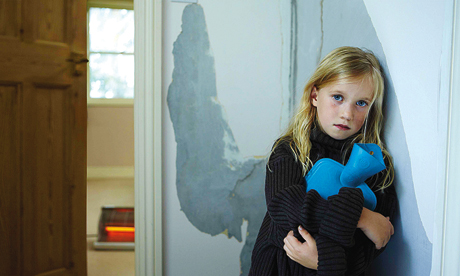One in three Hackney families too poor to heat their homes

Friends of the Earth is calling for a new law to make it illegal to rent out the coldest health-hazardous properties. Photo: Jon Challicom
Record low temperatures, transport deadlock, dangerous roads, schools closed. While there has been chaos on the outside recently, don’t we all deserve to return to a warm home where we can stay cosy on the inside?
Unfortunately, that’s often not the case in Hackney, where far too many of us live in fuel poverty. This is defined as when it costs more than 10 per cent of your income to heat your home to a decent level. Partly due to massive escalations in energy prices over the past few years, 4.5 million families in the UK now live in fuel poverty. That’s one in six families. At the last count it was double that in Hackney – a staggering one in three.
A recent Friends of the Earth survey showed that a third of people felt uncomfortably cold in their homes during the freezing weather. This rose to half among tenants in rented accommodation; still a third turned the heating off to save money despite being cold. We’re now campaigning for a new law to make it illegal to rent out the coldest health-hazardous properties until they’re improved.
Living in a cold damp home can increase our risk of serious illness, even death. This is an even greater problem among vulnerable groups such as the elderly and children. It’s bad for our health, tragic for our fuel bills and moreover it’s dangerous for our planet.
Badly insulated homes lead to us literally pumping climate changing emissions into the atmosphere; a typical house wastes a quarter of the energy its occupants pay for through bad insulation. Hackney’s Sustainable Community Strategy 2008-2018 estimates that 43 per cent of our area’s carbon emissions are produced by homes. There is clearly room for improvement.
Friends of the Earth’s new Warm Homes campaign is based on the premise that improving energy efficiency in homes is one of the easiest ways to slash CO2 emissions. It can protect health, save people money, create jobs and help halt climate change. And energy efficiency is the only long-term solution to fuel poverty. We’re joining the call for the government to improve the coldest two-thirds of British homes.
But in the meantime, there are things we can do ourselves to improve insulation at home, to reduce wasted emissions, and to save money.
Although they’ll require initial investment, replacing old boilers and insulating walls and lofts will, in time, be fantastically cost-effective, saving money year-on-year.
In the short term, you can block off many of those cold draughts yourself. According to the Energy Saving Trust if everyone in the UK draught-proofed their homes we’d save enough energy to heat 260,000 homes. You can stick strips around window-frames, block gaps around the edges of doors and loft hatches, fit an inflatable chimney balloon in an unused fireplace, fill cracks in floorboards and fill small gaps around pipework. Old towels, cardboard and stuffed tights may not be the most glamorous draught busters but can make good temporary solutions.
Hanging thick curtains over doors and windows can make a real difference, as can laying warm rugs on cold floors. Don’t open windows while you have the heating on or dry clothes on radiators: invest in a cheap clothes horse and let the radiators do their job. Don’t put furniture directly in front of radiators and attaching aluminium foil to the wall behind them will reflect heat back into the room. Remember to bleed unwanted air for maximum efficiency.
And finally, some of my favourite tips for keeping warm inside. Eat a balanced diet so your body can keep warm and have plenty of hot drinks. Cook, then leave the oven door open to take advantage of the heat. Dress warmly – layers are more effective than one thick item – and remember that most heat escapes through the head. Use warm bedclothes and a toasty hot water bottle. And most importantly, stay active! And that doesn’t have to mean jumping around to Mr Motivator; just a few minutes of hoovering will warm your body up and have you stripping off the layers.
Read more about Friends of the Earth’s Warm Homes campaign
Related:
